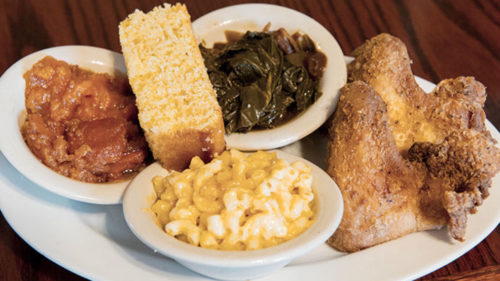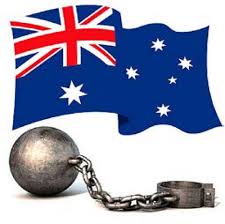
Jesus invited us to a dance, but we have turned it into a march of soldiers.
– Steve Brown, A Scandalous Freedom
One of my favorite parts of the daily liturgy I read comes at the beginning of the evening liturgy, which I always read at some point in the afternoon–a time when I’ve exhausted my personal (already nearly negligible) reserves of patience, kindness, energy, and humility:
O God, make speed to save us.
O Lord, make haste to help us.

I at least smile, and sometimes cry, every time I read or utter these words. Their bald need is such a welcome and necessary antithesis to much of what I see represented in the world today; their declaration of helplessness, of requiring rescue, stands in stark contrast to much of the individualistic, self-sufficient, “look busy, Jesus is coming” philosophies upon which I was raised as an American and an evangelical Christian. This crying out for help is a breath of fresh air and a balm to my soul and there is not a day when it doesn’t ring true (especially during homeschooling. Can I get an AMEN?)
I am a child of the American South and, as previously mentioned, evangelical Christianity, but for the past three and a half years I’ve lived with my family in Australia. Prior to that, in my single life, I spent five years in New York City. So I’ve had a chance to notice the differences between where I grew up and the rest of the world; I’ve also had years in which to cultivate an adversarial nature built on resentment over those differences. I’m a contrarian by nature, so opposition is comfortable ground for me. But differences can educate and I have definitely received an education. All of which is to say that I’m here to fight. (Kidding. Kind of.)
Recently it was Mother’s Day over on social media, and in real life too I suppose, though the public celebrations seemed louder. One post I saw featured a photo of a wife and mom and the caption mentioned how her family was “letting” her relax today since she never does otherwise, and my radar went off.
 An image popped into my head of my grandmother at my grandparents’ dining room table, popping up constantly to retrieve one more thing from the kitchen. It became a joke: to count how many times she’d get up during a meal. I always wondered why none of the other able-bodied adults at the table who also knew where the kitchen was didn’t offer to help; then again, she never asked. It was just presumed that this would happen at every lunch: Grandma springing up out of her seat like a jack-in-the-box while the rest of us sat on our asses and let her serve us more Country Crock. I mean, did we really need any more butter when the vegetables were already cooked in bacon fat?
An image popped into my head of my grandmother at my grandparents’ dining room table, popping up constantly to retrieve one more thing from the kitchen. It became a joke: to count how many times she’d get up during a meal. I always wondered why none of the other able-bodied adults at the table who also knew where the kitchen was didn’t offer to help; then again, she never asked. It was just presumed that this would happen at every lunch: Grandma springing up out of her seat like a jack-in-the-box while the rest of us sat on our asses and let her serve us more Country Crock. I mean, did we really need any more butter when the vegetables were already cooked in bacon fat?
Addressing this cultural preoccupation with busyness is not new ground for Mockingbird. We’ve cited and discussed it many times before. But what is culturally new is not being able to flaunt our busyness for the badge of honor it is because we literally can’t do anything right now. We can’t jump up from the table for more butter because we aren’t allowed to eat together. We can’t earn a day of relaxation once a year from our husbands because we’re all stuck at home anyway. We have this idea that relaxation is a reward to earn rather than a vital component of life and mental health; we think we have to angle for it or justify it, but right now? To a degree, it’s being forced on us. (Also, men, don’t ever use language like, you “let” your wife do something. It’s gross.)
The teachers at my kids’ wonderful school have made it clear that their online assignments are to be completed according to our ability to complete them. Not everyone will get to everything. Yet, every Zoom assembly we have, I notice that the kids getting awards are not those who had the wherewithal and self-awareness to recognize that their anxiety was rising too much and their mental well-being would be better served by saying “no” to the PE Journal of Activity. No, the stars who get the feathers in their caps are the ones who do the most each week. Last week, one of my boys, after not receiving an award again, turned to me accusingly and said, “But I thought you told me we don’t have to do everything!”
 This all feels resoundingly familiar to my American spirit. The spirit of Australia, I’ve come to learn, is embodied in mateship: more than just friendship, the idea reflects the interdependence born of shared experience (in this case, being members of a penal colony). Contrast this with the American Dream and the emphasis on the individual’s ascension through the ranks and you have quite a different thing. I’ve watched from across the ocean as Americans have displayed quarantine fatigue in the form of protests and venturing out into public spaces, and I get it–this all sucks very much. But what I’m missing, and what I’m seeing here in Australia (in all but the most extreme cases), is an awareness of the needs of others as being wrapped up within my own. No man is an island, as Donne wrote. But the US is looking more like an archipelago than ever.
This all feels resoundingly familiar to my American spirit. The spirit of Australia, I’ve come to learn, is embodied in mateship: more than just friendship, the idea reflects the interdependence born of shared experience (in this case, being members of a penal colony). Contrast this with the American Dream and the emphasis on the individual’s ascension through the ranks and you have quite a different thing. I’ve watched from across the ocean as Americans have displayed quarantine fatigue in the form of protests and venturing out into public spaces, and I get it–this all sucks very much. But what I’m missing, and what I’m seeing here in Australia (in all but the most extreme cases), is an awareness of the needs of others as being wrapped up within my own. No man is an island, as Donne wrote. But the US is looking more like an archipelago than ever.
I don’t miss that.
My kids are back at school today, a decision made based on scientific results and rational thinking for which I am truly thankful, and in their absence I feel a compulsion to get busy doing: I must fill my schedule with all the things I can’t get to when they’re here. A walk on the beach? Finishing all my reading? Write a memoir? Netflix binge? Yes, even the latter is an activity that qualifies as busyness right now in our accomplishment-starved culture. I’m finding that the freedom that I have–for six hours–to do whatever I want (other than shopping, or seeing a movie, or eating at a restaurant, or any of the other trappings of pre-virus life) is its own kind of bondage. The options, so vast without homeschooling on my plate, are overwhelming me nearly to the point of paralysis. So it is with so many of the ways we define “freedom,” most conspicuously, when it means doing whatever we want, everyone else be damned. This is not true freedom, for within it I am missing an essential ingredient: love. It sure is, after all, quiet around here without those little boys at home.
In The Crucifixion, Fleming Rutledge cites Daniel Bell, who writes about the work of Anselm that:
it discloses how Christ’s work on the cross cannot be correlated with a capitalist logic that revolves around scarcity, with its calculi of debt, equity, and death, but instead illuminates a divine economy of charity, an economic order characterized by plenitude and generosity that exceeds the strictures of capitalism as surely as Christ burst the bonds of death.
The above, and this post, are not recommendations about an optimal earthly political system but a recognition–and reminder to myself, above all–that this divine economy, in its plenitude and generosity, is one devoid of my own accomplishments and composed entirely of what has been done on my behalf. The “do more in order to be more” urgings of society are being muzzled unsuccessfully by COVID-19 but they have already been proven empty by what happened on the cross. And this–this love that is imparted to me through no effort of my own–this is true freedom. The kind that lets me encourage myself and others to just sit down at the table and enjoy the meal.

COMMENTS
3 responses to “Good Luck With That Self-Sufficiency You Speak Of”
Leave a Reply













I love the idea of mateship. And amen to the emptiness of “do more in order to be more.”
Wow – it’s almost hard to believe your boys are back at school. That’s definitely not the vibe where I’m at.
But folks, you heard it hear first: “It sure is, after all, quiet around here without those little boys at home.” Really hits home. Thanks for writing, Stephanie.
This is so great. My whole life I’ve felt that relaxation needed to be earned.